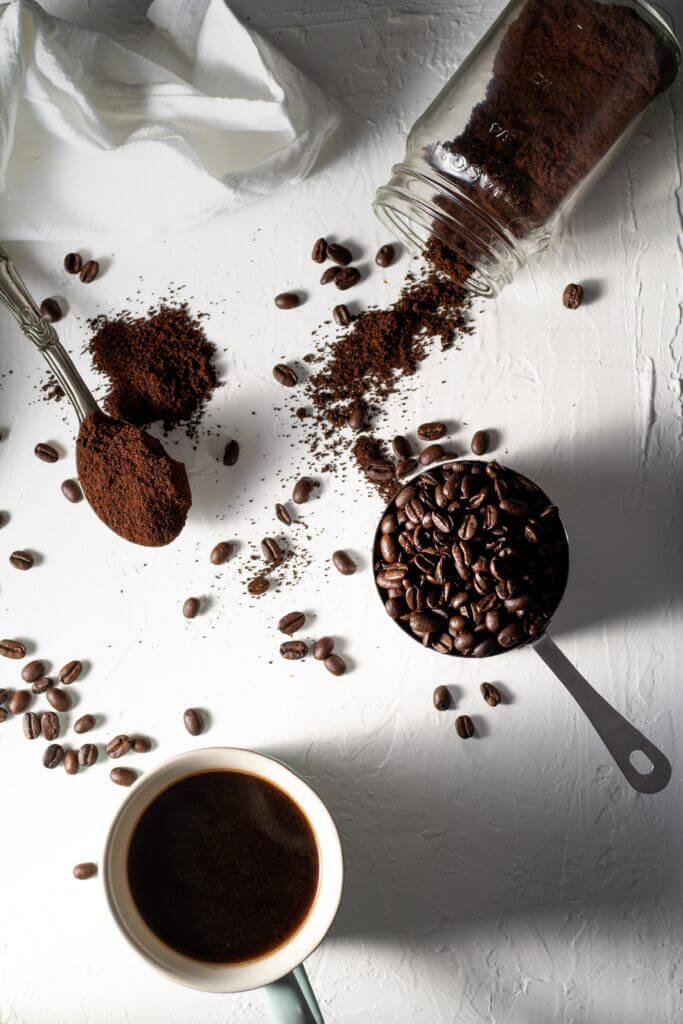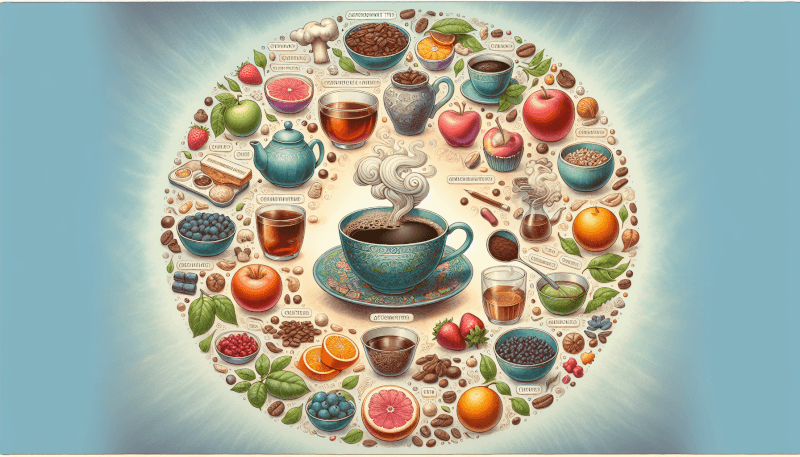Are you someone who loves their daily dose of caffeine but also fears the jitters and sleepless nights it can sometimes bring? If so, you’ll be delighted to know that there are certain foods that can help counteract the effects of caffeine. Whether it’s a cup of coffee, energy drink, or even a piece of chocolate that has given you an extra boost, these foods can come to your rescue when it’s time to wind down. From bananas to green tea, this article will explore the world of deliciously effective caffeine counteracts. So, sit back, relax, and discover how you can strike the perfect balance between staying energized and getting a good night’s sleep.

Foods that Counteract Caffeine
Introduction to Caffeine
Caffeine is a natural stimulant found in various beverages and foods. It is known for its ability to provide a boost of energy and increase alertness. Many people rely on caffeine, such as coffee or tea, to help them stay awake or focused throughout the day. While caffeine can have its benefits, consuming too much can sometimes lead to jitters, anxiety, and disrupted sleep patterns. Fortunately, there are several foods that can help counteract the effects of caffeine, providing a balanced and soothing effect on the body.
Effects of Caffeine on the Body
Before diving into the foods that can counteract caffeine, it’s important to understand how caffeine affects our body. When consumed, caffeine stimulates the central nervous system, making us feel more awake and alert. However, it can also lead to increased heart rate and blood pressure, as well as interfere with sleep patterns. Additionally, some individuals may experience jitters, anxiety, or digestive issues when consuming too much caffeine. By consuming certain foods, you can help mitigate these effects and restore a sense of balance to your body.
1. Water
Water is a natural and simple remedy to counteract the effects of caffeine. Staying hydrated is essential in maintaining overall wellbeing, and it can also help dilute the effects of caffeine on the body. Drinking a glass of water alongside a caffeinated beverage can help reduce its impact and prevent dehydration. Remember to stay hydrated throughout the day, as this will aid in flushing out any excess caffeine in your system.
2. Herbal Teas
If you’re looking for a warm and comforting beverage to counteract the effects of caffeine, herbal teas are an excellent choice. Unlike traditional teas, herbal teas are naturally caffeine-free. You can choose from a wide variety of herbal teas, such as chamomile, peppermint, or ginger, which offer soothing properties and can help calm your body and mind. Sipping on these herbal infusions can provide a gentle and relaxing experience, making them a great alternative to caffeinated drinks.
3. Decaffeinated Coffee
If you love the taste of coffee but want to reduce your caffeine intake, decaffeinated coffee is a wonderful option. Decaf coffee is made from beans that have undergone a process to remove most of the caffeine content. While there may still be a small amount of caffeine present, it is significantly lower compared to regular coffee. You can enjoy the familiar aroma and taste of coffee without worrying about the jitters or sleep disturbances often associated with high caffeine consumption.
4. Green Leafy Vegetables
Green leafy vegetables, such as spinach, kale, and Swiss chard, are not only nutrient-dense but can also help counteract the effects of caffeine. These vegetables are rich in magnesium, a mineral known for its calming properties. Magnesium can help relax the muscles, support proper sleep, and reduce anxiety. Incorporating a serving of green leafy vegetables into your meals can provide a natural and healthy way to balance out the stimulating effects of caffeine.
5. Bananas
Bananas are not only a delicious and convenient snack, but they are also a great food to counteract caffeine. They are a rich source of potassium and magnesium, which can help soothe the nervous system and promote muscle relaxation. Consuming a banana can provide a natural and gentle way to alleviate the jitters or anxiety sometimes associated with excessive caffeine intake. Additionally, bananas are an excellent source of energy and can help replenish electrolytes, making them an ideal choice after consuming caffeine.
6. Avocados
Avocados are not only a trendy ingredient but also a food that can help counteract the effects of caffeine. They are rich in healthy fats and contain a good amount of potassium. These nutrients can help support a calm nervous system, reducing any jittery feelings caused by caffeine. Avocados are also known for their ability to provide sustained energy, making them an excellent addition to your diet when trying to balance the stimulating effects of caffeine.
7. Yogurt
Yogurt is a versatile and nutritious food that can aid in counteracting the effects of caffeine. It contains calcium and probiotics, which can help calm the digestive system and promote a sense of relaxation. The calcium in yogurt can also have a soothing effect on the muscles and nerves, helping to reduce any potential jitters caused by caffeine. Including yogurt as part of your breakfast or as a snack can provide a balanced and soothing effect on your body, especially when consumed alongside a caffeinated beverage.
8. Magnesium-rich Foods
In addition to green leafy vegetables, several other foods are rich in magnesium and can help counteract the effects of caffeine. Nuts, seeds, whole grains, and legumes are all excellent sources of magnesium. These foods can help relax the muscles, calm the nerves, and restore a sense of balance to your body. Incorporating these magnesium-rich foods into your diet can be a beneficial way to counteract the stimulating effects of caffeine, promoting a calm and balanced state of being.
9. Vitamin C-rich Foods
Foods high in vitamin C can provide support in counteracting the effects of caffeine. This essential vitamin is known for its antioxidant properties and its ability to reduce stress hormones in the body. Citrus fruits, berries, kiwi, and bell peppers are all excellent sources of vitamin C. Including these foods in your diet can help mitigate the potential anxiety or jitters caused by caffeine, providing a calming effect on both the mind and body.
10. Anti-Inflammatory Foods
Caffeine consumption can sometimes lead to digestive issues or inflammation in the body. Incorporating anti-inflammatory foods into your diet can help counteract these effects and promote overall wellbeing. Foods such as turmeric, ginger, fatty fish, leafy greens, and olive oil possess anti-inflammatory properties and can aid in reducing any potential inflammation caused by caffeine. By consuming these foods regularly, you can help maintain a healthy balance in your body and counteract the negative effects of caffeine.

Conclusion
While caffeine can provide a much-needed boost of energy, consuming too much can sometimes lead to unwanted side effects. By incorporating the listed foods into your diet, you can help counteract the stimulating effects of caffeine and restore a sense of balance to your body. From hydrating with water to enjoying soothing herbal teas and including nutrient-rich foods like green leafy vegetables, bananas, avocados, yogurt, and magnesium and vitamin C-rich foods, you have plenty of options to choose from. Remember to listen to your body and find the right balance that works for you.



